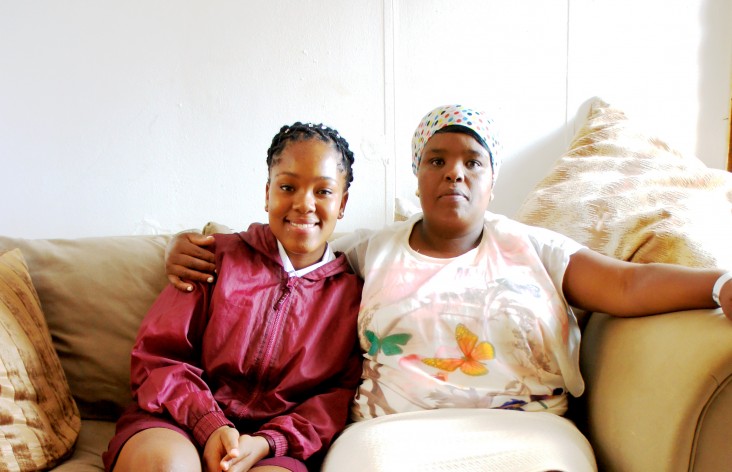
May 2016—Nestled in the south of Johannesburg is a sprawling informal settlement known as Freedom Park, established following South Africa’s democracy in the late 90s. It is here that you find poverty, high unemployment rates and families ravaged by HIV/AIDS and other opportunistic diseases.
It is also here where you find a youth project known as Ikusasa Lethu, translated loosely as “Our Future.” They work with community-based projects to improve the management and delivery of services provided to orphans and vulnerable children.
Ikusasa Lethu was established in 2008 in the disadvantaged community of Freedom Park and Devland to help combat disease and other socioeconomic problems. The project provides two to three meals a day to nearly 300 children; helps children with their school work and checks on their health, ensuring that they eat balanced meals and take any necessary medication; and visits ailing parents in their homes to ensure that they eat, take medication, and attend regular check-ups at the clinic.
The project is supported through a partnership between USAID and HIVSA.
The USAID-supported Let’s Talk activity under Ikusasa Lethu is designed to help adults living with HIV and the adolescents in their care. Phase one of the program addresses caregivers or parents separately, followed by phase two and three, which are comprised of combined sessions for both caregivers and children.
Mahlaku Ratau introduced her mother to the Let’s Talk program after she had visited Ikusasa Lethu to receive regular meals offered to disadvantaged children. Her mother, Matloe, a single parent, was excited and agreed to join the program with her daughter.
The program was an eye-opener for Matloe, helping her to realize how her behavior could affect her daughter and their relationship. Let’s Talk helped her build confidence as a parent and understand her responsibilities.
“It’s so hard to be a parent these days when you try to get your children to move away from the streets, especially at night, and also get them to help with home chores,” said Matloe. “Before attending this program, I used to shout at my children for not listening and helping me with house chores.”
Today, Matloe is more calm and receptive to her daughter’s ideas and requests. After battling to get Mahlaku to help with house chores, she was surprised one day to find her doing laundry without any instruction. That is when she first realized the effects of the program.
Although they used to have a rocky relationship, now, through exercises that involve problem-solving skills, Mahlaku and Matloe are best friends. Mahlaku now appreciates the importance of having a parent, recognizing that parents also went through adolescence. “The program made me realize that adults want what’s best for us, and our attitude determines our future,” she said.
Discussing difficult topics such as sex and sexual health, issues that Mahlaku never thought of discussing with her mother, has become easy. They have also learned how to prevent pregnancy and avoid contracting HIV and other infectious diseases.
The program also helps participants cope with difficult emotions such as sadness and anger, and includes sessions on positive family relationships, effective communication, and preventing and responding to crises.
Matloe and Mahlaku are now sharing what they learned with other members of their family, fellow community members, and friends at school, and are encouraging others to join the program.
“We want young people to make choices to develop their bodies and minds to the fullest extent possible; to live to the fullest, but to be consequent in what they choose to do and what they choose not to do,” said Dr. Aaron Motsoaledi, the national health minister of South Africa, at the August 2015 launch of a youth mobile website that caters to the health and development needs of adolescents.
So far, the program, which started in July 2015, has reached 76 female parents/guardians and 93 adolescents (69 girls and 24 boys) between the ages of 13 and 17, and plans to reach more as it expands. For those facing difficult times with their children, Let’s Talk has become a lifesaver.
LINKS
Follow @USAID_SAfrica, on Facebook, on Flickr, on YouTube







Comment
Make a general inquiry or suggest an improvement.